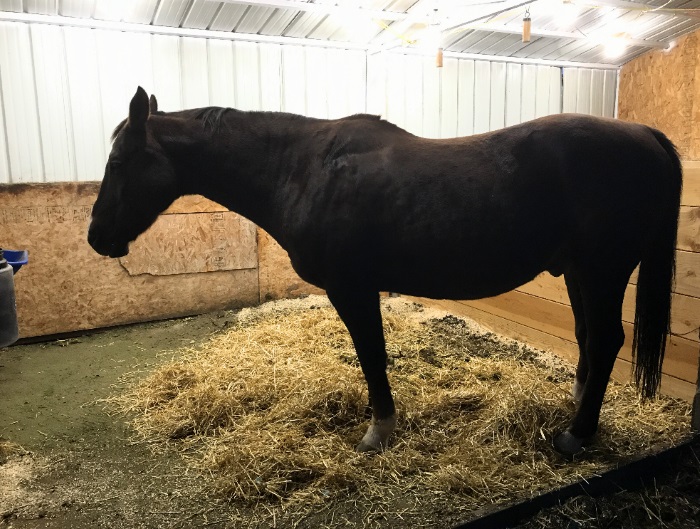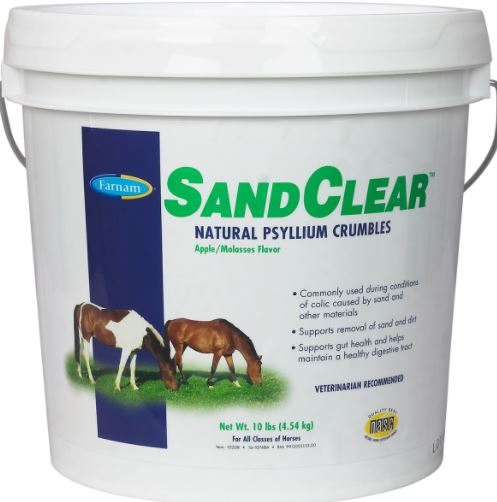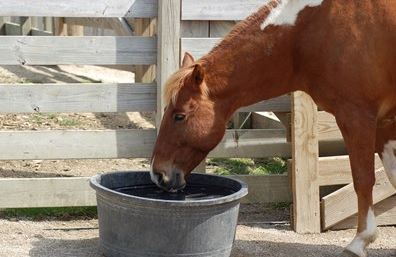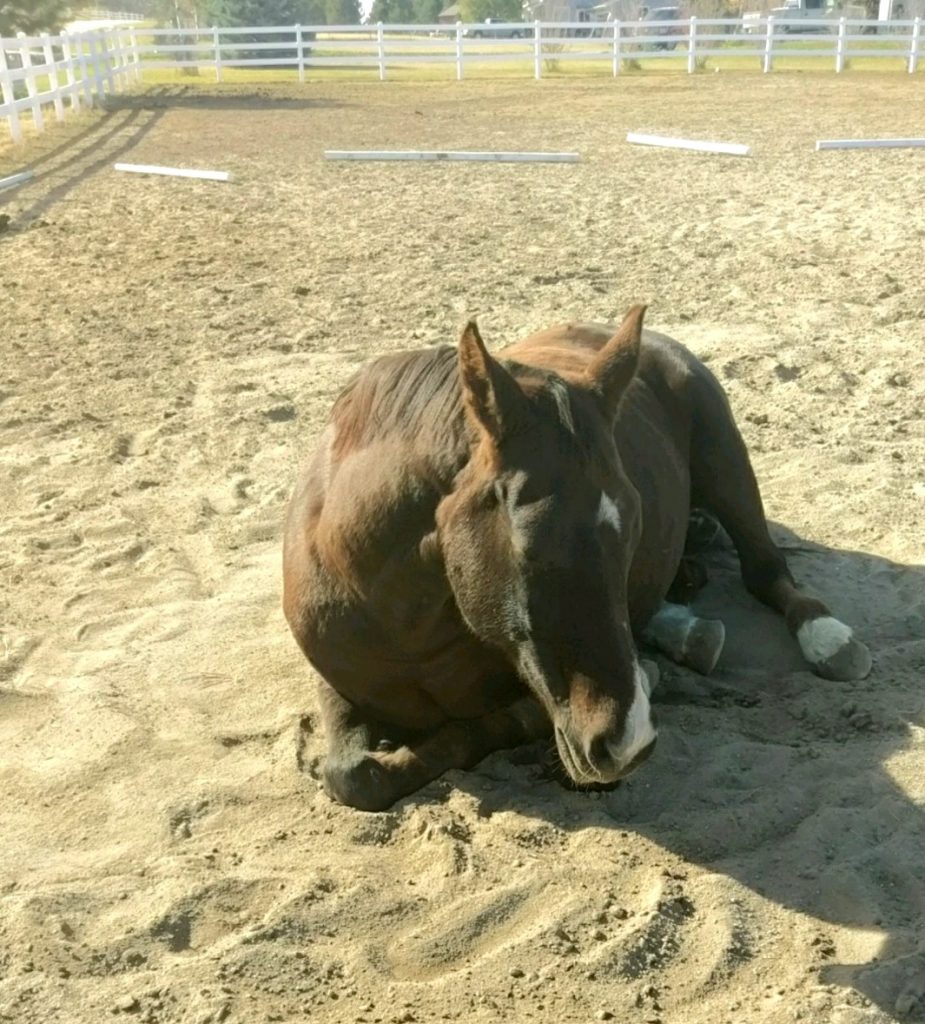My Horse Could Have Died
I hate to be dramatic, it’s not who I am. So when I tell you my horse could have died, I am not saying it to be dramatic in any way. Let me explain.
Yesterday, I was at work and I get a text message from my husband. Actually, I got 8 text messages from my husband while I was in seeing a patient. “Frisby doesn’t look good.” Was the first message around 3:30 pm. And then 2 photos showing Frisby laying down in my riding arena. My husband was right, Frisby did not look like Frisby. He looked mopey, and uncomfortable. Honestly, when I got the messages, my heart sank.
There was something wrong with the horse who I have owned for the past 11 years. And just from looking at the photos, I couldn’t be sure, but with the messages from my husband, I had a very bad feeling that Frisby was colicing. He was breathing heavily, he was lethargic, ad he wouldn’t come to fresh grass. He wouldn’t get up, and he looked very tired.
Is This Really an Emergency?
While I was working, and trying to leave I was having flashbacks of Dusty. Dusty was a horse we had owned for about 9 years, and he too was acting funny a few years back. Unfortunately, I didn’t pay attention to the seriousness of his symptoms, and when the vet came it was too late. Dusty had to be put down because he had a very severe impaction colic, and he was suffering. There was nothing we could have done at that point other than surgery. And I didn’t think Dusty would have been able to survive that so I did the only humane thing I could do, and ended his suffering.
So when I got the text from my husband about Frisby, I was thinking “here we go again.”
What’s Wrong With My Horse
It seemed like everyone in the state of Colorado had decided to get on the road when I was trying to get home. The entire time I was trying to convince myself that he was fine. He probably just doesn’t feel good, or he ate something he shouldn’t have. I was searching my brain for anything I had changed recently that could explain what was going on.
When I got home Frisby was standing in his paddock. His head was low, but when he heard my voice he perked up, briefly. Frisby didn’t look horrible when I saw him. He looked tired. There was no light in his eyes, and he did look mopey. That was the best word my husband could have used to describe how Frisby was acting.
I decided to clean his stall, and watch him for a bit before calling the vet. I mean, I didn’t know what I was dealing with completely yet.
Signs and Symptoms
I wanted to clean his stall to remove any manure, so I would know how many times he has pooped while I was deciding whether or not that the vet needed to come out. And during this process, he came into his stall and pooped. Thank God! I thought to myself. He’s pooping, this is good. Then he urinated, another good sign. I started to feel a little bit better. But this feeling was short lived.

A little bit later, I noticed Frisby was sweating a little bit at his shoulders. Not good. And then I noticed he was doing the tell tale sign of colic, he was looking at his sides. Really not good. And then he started spinning tight circles in his stall as he tried to lay down. Oh crap.
I grabbed my stethoscope and checked his pulse, it was 30. This is completely normal for a horse. Then I took his temperature, 98.6. Again, completely normal. I listened to his tummy, and he had good gut sounds.
I wasn’t completely sure he needed the vet, but something made me call, and I am so glad that I did.
Thank God For the Vet
It was getting dark, and I decided it wouldn’t hurt to call. I was armed with a lot of information, and I thought they could at least give me an idea if they needed to come out. It was after office hours, but the answering service had patched me through to the vet on call and I told her what I had noticed. She said it sounded like a mild colic, and if I had some banamine, I could give this too him and watch him. Well I didn’t have any of that, and she said she could come out. It wasn’t too late yet and I decided I would rather just have her come out and take a look.
The Visit
About 30 minutes later she drove up. I had never been so happy to see a vet. She gave Frisby a once over and said his gut sounds were ok, not great but ok. She thought it would be best to do a rectal exam (eeewwww) So Frisby got doped up, and actually stood really well for the exam. She found that he did have a small impaction, and there was a gas build up before it. Not good. She said we could stick a tube into his stomach, and give him fluids, electrolytes, and mineral oil to get everything moving. I enthusiastically agreed.
She made fast work of getting the tube into his stomach via his nose. And Frisby was a trooper. He didn’t like it, but he dealt. In when the tube, followed by water. She was able to check his stomach contents, and his tummy was empty, which she said was a really good thing. Then the electrolytes, followed by the mineral oil. And my horse took it like a real trooper. He didn’t fight too much, and he let us help him.
After everything had been done, and the drugs had time to work Frisby looked more like himself. His eyes had a light in them again, and he was a lot more perked up. He even decided he was hungry, and started to try and eat his straw bedding. (Not good)
She left me with some electrolyte paste and a tube of banamine. She told me no food, including bedding, so I had to strip down his freshly bedded stall. And I asked her if this could have been worse if I had waited to call, and she said yes. Frisby could have died from the impaction. I was so glad I made the decision to call.
The Cause
While she was busy working on Frisby, and I had so many questions of why this happened, I finally found my voice and asked. Why did this happen? She explained to me that it happens a lot this time of year. The sudden temperature changes, and weather changes that we have been having lately is probably the cause. Last weekend it was 19 degrees. And this week, it has been in the 70’s. Welcome to fall in Colorado. Snow one day, and shorts weather the next. Stupid weather. She also said when the weather has wild fluctuations in temperature, horses drink less, and this can happen. I told her I have owned him for 11 years, and he has never coliced before, why now?
She told me that if I had owned him for 11 years, and never dealt with a colic I was doing a good job as a horse mom. I have to admit, that made me feel a little bit better. Because I was feeling like this whole situation was my fault, that I had done something to cause this to happen. I felt like a bad horse mom.
When In Doubt Call The Vet
The biggest lesson I learned from this is if your gut is telling you to call the vet, do it. Even if you aren’t sure, just call them. They will probably tell you they can come out and do an exam, or they may tell you it’s ok to wait. But before you call, be sure to have helpful information. report to them what you are noticing. How is your horse acting, and what are his vital signs. If you don’t know how to check your horse’s temperature or pulse, learn how to do it. If you are afraid you might forget something write it down. The more information you have available for the vet can help them to determine if this is something urgent, or something that can wait.
When you call them, give them all of the information. They can then determine if this is ok, or if they should come out. It’s only a phone call. And it’s better to have them come out earlier, rather than after it’s too late. Pay attention to your horse, learn what his normal’s are. For me and Frisby, this is easy because I have owned him for so long. I know his mannerisms, I know how he normally acts. And when he was not acting normal, that was my first cue that something was wrong.
Don’t wait until it is too late. By calling the vet in the early stages of colic, I was able to get her to my barn in time. You don’t want to live with regret, trust me. I still regret my decision that I waited to call the vet with Dusty until after it was too late. Just call the vet. If you think there is a chance that something is wrong, trust your gut (no pun intended) and just call. Yes it will cost money, but you just might save the life of an incredible animal who brings you so much joy.
How To Prevent Colic
I try to do everything I can to prevent colic from happening in the first place. My horses have access to good, quality hay. I always make changes gradually. And I make sure they have access to fresh water 24 hours a day.
Electrolytes
Be sure to have electrolytes on hand, and feed them to your horses during times of stress or changes of seasons. You want to be sure they are drinking water, and the electrolytes encourage this. They also have minerals and elements that your horse needs. There are powders you can buy, and pastes. My vet gave me a paste, and Frisby didn’t have any problems with that, so I will be sticking with the paste I think.
Supplements

Feed a supplement that helps to prevent impactions from happening. There are products with psyllium that help to prevent the build up of sand in the gut. I have never done this before, but I will be adding it now. I am going to Dover’s today, and will be buying Sand Clear in addition to the coat supplement I usually feed, because I ran out. The coat supplement I feed is Omega Fields Horse Shine. I have been out for a week, and this has something in it that helps to prevent colic. I am wondering if this was a catalyst, because Frisby hadn’t had his supplement for the past week. I will make sure I always have this for him. It does make his coat beautiful, and if it prevents colic, I am all for that.
Fresh Water

Always make sure your horse has access to fresh, clean water. This is the most important thing you can do, and it doesn’t cost anything. Keep your water buckets filled, and clean to encourage your horse to drink his fill of water. And if you live where the water freezes, be sure to add a tank heater, to make the water a little warmer during the cold months. If the water is too cold, your horse won’t drink as much. You want to encourage him to drink, no matter what time of year it is.
The Supplies
Like I said earlier, you need to know how to check your horse’s temperature, listen to gut sounds, and check his heart rate. I like to have tools that will make this easier. I have a stethoscope, and a thermometer that I keep in the barn for emergencies. Having these items, and knowing where they are will make it easier. It is also helpful to have the information to be able to report to your vet, so they have more information when determining how much of an emergency your horse is having.
The Aftermath

I’m not going to lie, I was a little apprehensive going out to the barn this morning. I wasn’t sure what I would see. But thankfully, Frisby was out in his paddock, bright eyed and looking hungry. He pooped twice over night, and let me give him his banamine paste and electrolytes without any problems. I gave him his 1/4 flake of hay, and he happily ate it. I think the worst is behind us now. And I will do everything I can to prevent such an emergency from happening again. But the biggest lesson I have learned, when in doubt, call the vet. It’s better to get them out there early instead of when it is too late.
